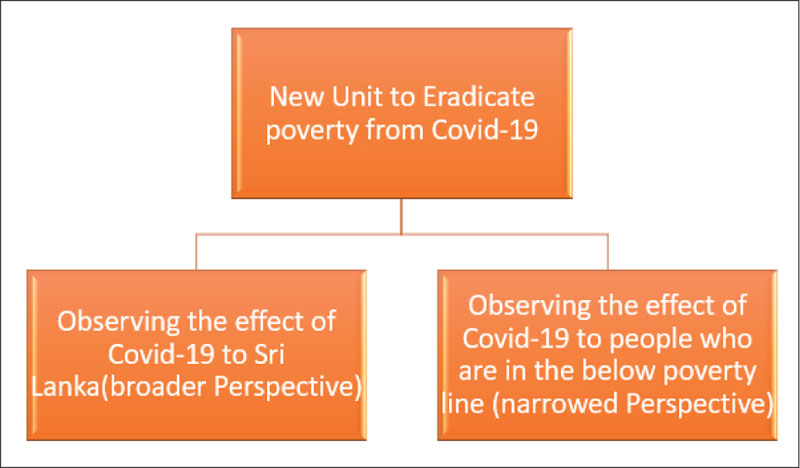Monday Feb 16, 2026
Monday Feb 16, 2026
Tuesday, 14 December 2021 00:03 - - {{hitsCtrl.values.hits}}
 Still we have different discussions on COVID-19. Most of the countries racing to track the new variants and scientists are really busy with their different testing and experimentations. But you need to understand the law in the universe as the disaster happens, the poor people (countries) get more affected.
Still we have different discussions on COVID-19. Most of the countries racing to track the new variants and scientists are really busy with their different testing and experimentations. But you need to understand the law in the universe as the disaster happens, the poor people (countries) get more affected.
In the year 2016, the report from the World Bank and the Global Facility for Disaster Reduction reveals that the impact of extreme natural disasters is equivalent to a global $ 520 billion loss in annual consumption, and forces some 26 million people into poverty each year. As per the Center for the Study of Traumatic Stress (CITS), “Over 90% of deaths due to natural disasters occur in low-income countries. Even in developed countries, low-income citizens are most affected by disasters”. So we can have a new concept called ‘UDPC’ or ‘Universal Disaster Poverty Cycle’ in this context. This can be seen in the same with COVID-19 pandemic as well.
Last year in the middle of the COVID-19 Pandemic Dr. David Nabarro, the World Health Organization’s Special Envoy on COVID, also commented on the same scenario: “This is a disease now fundamentally of poor people and poor nations”. Also at that time (16 November 2020) Oxfam Health Policy Adviser Anna Marriott observed: “Low-income countries as a whole, shockingly, less than 1% of the total vaccine supply has been delivered to those poorest countries, many of which are in Africa.”
Adding to this the recent report of The World Inequality Report (produced by The World Inequality Lab) observed that this pandemic has exacerbated many existing inequalities. As per Lucas Chancel, Lead Author of the report, “The COVID crisis has exacerbated inequalities between the very wealthy and the rest of the population. Yet, in rich countries, government intervention prevented a massive rise in poverty, this was not the case in poor countries. This shows the importance of social status in the fight against poverty.”
Hence it is important for Sri Lanka to have different strategies to cope up with this Universal Disaster Poverty Cycle (UDPC).
 Sri Lanka and strategies
Sri Lanka and strategies
The country needs to have a separate unit establish to observe this in two different ways. (See diagram)
The role of the unit is to make observations on global changes and national changes in terms of poverty due to ongoing pandemic and even in the new normal situation. Further, the same unit can make recommendations to stakeholders as well. This model can be used in upcoming national and international disasters in Sri Lanka. This is important to take some measurements beforehand and even to have a proper situational analysis to obtain some relief from donors.
Anyway, the role of the authorities should be not only to make recommendations but make sure that the needy people (in the case of poor people in Sri Lanka may be affected by the flood) are properly managed with sufficient short term and long term social security system. This unit does not necessarily should be a state entity and it can be proposed to have better collaboration with industry (as you have many experts on this outside).
Conclusion
In Sri Lanka, we have witnessed this COVID-19 which has triggered the economy in a really bad way. Anyway if you really analyse this country it is clear that other than the pandemic Sri Lanka always have 70 years of problem of poor planning and forecasting which needs to rectified immediately by getting the best Qualified, Honest and Capable (QHC) experts into the main forum. We should always keep in mind that if one element is missing in QHC, then you will again go back to square one.
(The writer is a Professor in Management Studies, Faculty of Management, Management Studies, the Open University of Sri Lanka. You can reach Professor Abeysekera at [email protected].)